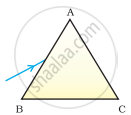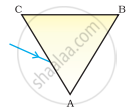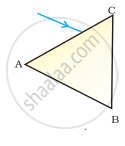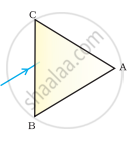Advertisements
Advertisements
प्रश्न
Give the main function of the following:
Lachrymal glands
उत्तर
APPEARS IN
संबंधित प्रश्न
Draw labelled diagrams of the following: Eye
Give the scientific names of the following parts of the eye:
a hole in the middle of the iris.
The term " accommodation" as applied to the eye, refers to its ability to:
(a) control the light intensity falling on the retina
(b) erect the inverted image formed on the retina
(c) vary the focal length of the lens
(d) vary the distance between the lens and retina
The size of the pupil of the eye is adjusted by:
(a) cornea
(b) ciliary muscles
(c) optic nerve
(d) iris
What are the advantages of having two eyes instead of just one?
The animal which does not have eyes that look sideways is:
(a) Horse
(b) Chicken
(c) Lion
(d) Fish
With reference to the functioning of the eye, answer the question that follow:
Name the cells of the retina and its respective pigments which get activated in the dark.
State the function of each of the following parts of the human eye:
(i) Cornea
(ii) Iris
(iii) Pupil
(iv) Retina
Millions of people of the developing countries are suffering from corneal blindness. This disease can be cured by replacing the defective cornea with the cornea of a donated eye. Your school has organised a campaign in the school and its neighbourhood in order to create awareness about this fact and motivate people to donate their eyes after death. How can you along with your classmates contribute in this noble cause? State the objectives of organising such campaigns in schools.
Choose the correct answer.
In the chemistry of vision, the photosensitive substance is _________________
What is meant by power of accommodation of the eye?
Give Technical Term:
The fluid which conveys the vibrations of sound in the cochlea and semicircular canals.
Choose the Odd One Out:
Write the name.
The screen with light sensitive cells in human eye.
A prism ABC (with BC as base) is placed in different orientations. A narrow beam of white light is incident on the prism as shown in Figure . In which of the following cases, after dispersion, the third colour from the top corresponds to the colour of the sky?
 |
 |
 |
 |
| (i) | (ii) | (iii) | (iv) |
| Column I | Column II | ||
| 1 | Retina | a | Path way of light |
| 2 | Pupil | b | Far point comes closer |
| 3 | Ciliary muscles | c | near point moves away |
| 4 | Myopia | d | Screen of the eye |
| 5 | Hypermetropia | e | Power of accomodation |
Match the following:
| Column - I | Column - II | ||
| 1 | Retina | a | Path way of light |
| 2 | Pupil | b | Far point comes closer |
| 3 | Ciliary muscles | c | near point moves away |
| 4 | Myopia | d | Screen of the eye |
| 5 | Hypermetropoia | e | Power of accomodation |
Write in proper sequence the names of all the parts of the human eye through which the light rays coming from an object pass before they form an image on the retina.
Match the following:
| Column - I | Column - II |
| 1. Retina | a. Path way of light |
| 2. Pupil | b. Far point comes closer |
| 3. Ciliary muscles | c. near point moves away |
| 4. Myopia | d. Screen of the eye |
| 5. Hypermetropia | e. Power of accommodation |
With reference to human eye answer the question that follow:
Name the part of the eye associated with keeping the lens moist and protecting it from physical shock.
With reference to human eye answer the question that follow:
Name the part of the eye associated with the layer providing nourishment to the eye.
